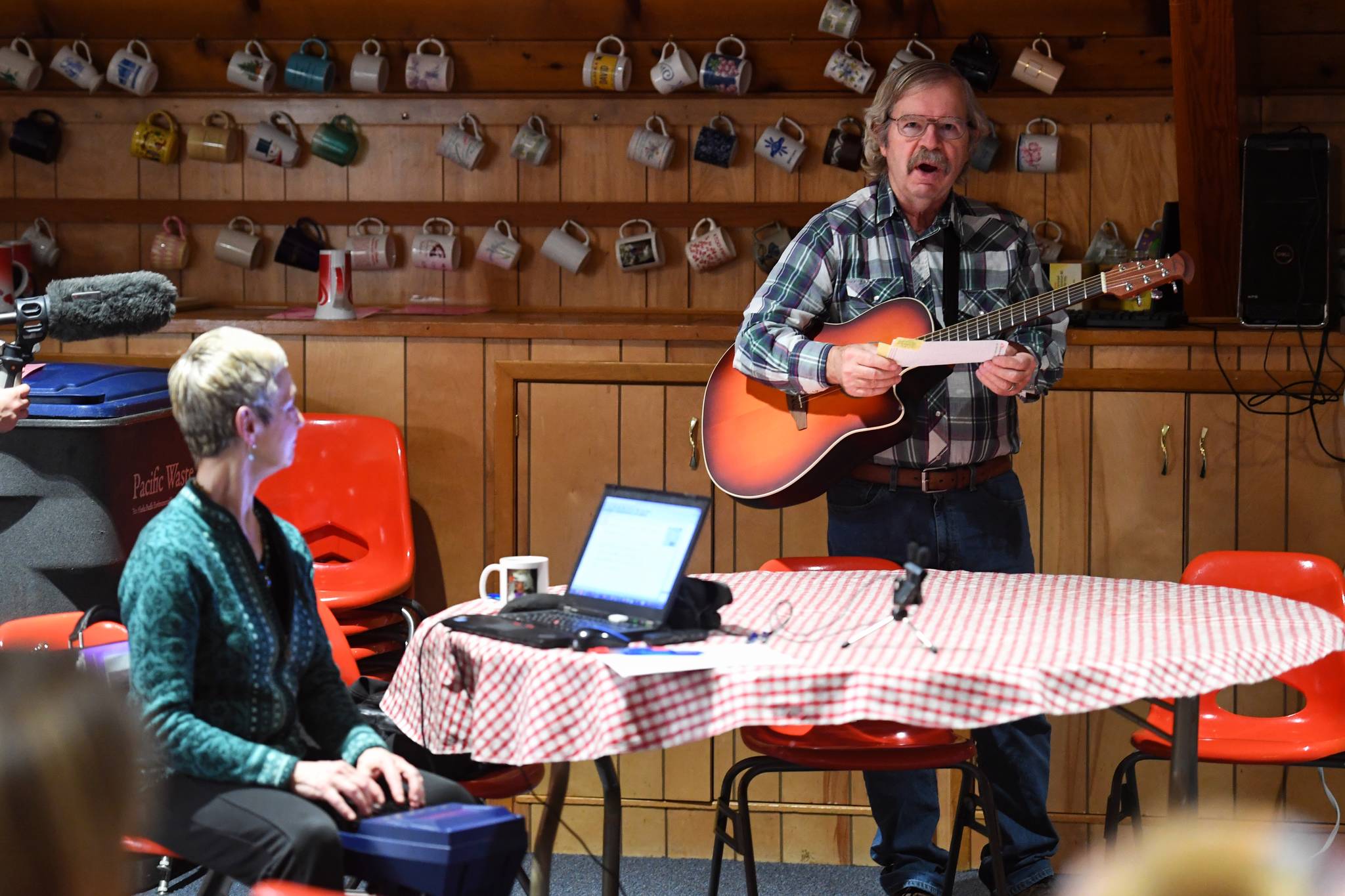As the public comment period for the Alaska specific Roadless Rule comes to an end, the Southeast Alaska Conservation Council held one last meeting to rally support for keeping the rule in place in the Tongass National Forest.
“I was standing in the Tongass, what did I see,” sang Bart Koehler, former executive director of SEACC, who played guitar and sang his comment. “A forest full of giants running to the sea…keep those logging roads away.”
SEACC hired a stenographer to record people’s spoken comments to submit them in writing to the U.S. Forest Service. One of the reasons they chose to do this, according to SEACC’s Tongass program manager Dan Cannon, was because comments from the public were not recorded at an earlier Forest Service meeting on the alternatives.
At that Nov. 5 meeting, the Forest Service answered questions and presented information on the proposed alternatives but did not take public comment. Several members of the public at that meeting were upset their spoken comments were not recorded for the record.
Members of the public took turns Monday night, some reading prepared comments, others speaking off the cuff, speaking before a crowd while the stenographer took down their speeches.
“I’ve lived in Juneau for over 50 years,” said Philip Gray, a retired Alaska Department of Fish and Game worker. “I spent a lot of time on the ground in unlogged areas, I’ve also spent a lot of time in areas that have been pretty heavily logged.”
Commercial fisherman in one of those logged areas had called Fish and Game because of the amount of mud that was flowing into streams and the ocean, harming the fishing in those areas.
“It looked like it had been bombed,” Gray said.
On Oct. 15, the U.S. Department of Agriculture, the federal executive office responsible for forestry as well as agriculture, announced it would be looking at six alternatives to the rule that prohibits road construction or reconstruction and timber harvest on 58.5 million acres of National Forest System lands.
The preferred alternative listed by the USDA is Alternative 6, which would lift the rule entirely in the Tongass. Proponents of lifting the rule say it’s not just about the timber industry.
Robert Venables, executive director of Southeast Conference, told a Congressional subcommittee that the Roadless Rule shouldn’t be viewed only through the lens of timber. In prohibiting road construction, the rule makes it very difficult for critical infrastructure projects that help many of the rural communities in the Tongass.
”It’s about forest management,” Venebles told the subcommittee on National Parks, Forests and Public Lands under the House Natural Resources Committee on Nov. 13. “It’s about access to resources that local communities, the state and the nation need.”
But SEACC executive director Meredith Trainor said the people of Southeast Alaska have spoken loud and clear, and they want the Roadless Rule to remain in place on the Tongass.
“The Roadless Rule is specifically about new timber roads,” Trainor said. “We know there have been 57 exceptions made to allow for projects like electrical utilities.”
Trainor said she hopes USDA Secretary Sonny Purdue listens to the people of Southeast Alaska when making his decision.
“Political leadership is about making hard decisions that are important in the long run, and I’d like to think Secretary Purdue is an independent thinker,” she said.
• Contact reporter Peter Segall at 523-2228 or psegall@juneauempire.com.

